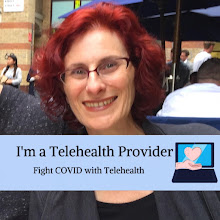 In 1970, zero pounds of high-fructose corn syrup (HFCS) existed in the United States food chain. By 2008, about 68 pounds of HFCS were consumed per American per year. The cheapest ingredients in the American food chain (profit sector) are air, water, salt and HFCS. HFCS is cheaper due to a combination of corn subsidies and sugar tariffs. Corn, and usually highly processed corn, has become a staple ingredient of the American diet.
In 1970, zero pounds of high-fructose corn syrup (HFCS) existed in the United States food chain. By 2008, about 68 pounds of HFCS were consumed per American per year. The cheapest ingredients in the American food chain (profit sector) are air, water, salt and HFCS. HFCS is cheaper due to a combination of corn subsidies and sugar tariffs. Corn, and usually highly processed corn, has become a staple ingredient of the American diet.In 2006, America imported 80% less sugar than thirty years earlier. The government guarantees producers a fixed price for domestic sugar and sets strict quotas and tariffs for foreign sugar keeping sugar prices in the U.S. at least twice as high as the world average.
HFCS, which is made from cornstarch, is now used to sweeten: Soft drinks (including some sports drinks), fruit juices, baked goods, canned fruits, dairy products, cookies, gum, jams, and jellies.
So what makes corn syrup such an unhealthy fat-promoting product?
Fructose is Metabolized to Fat
Fructose converts to fat more than any other sugar. Research shows that fructose caused a general increase in both total serum cholesterol and in low density lipoproteins (LDL a.k.a "Bad cholesterol"), putting a person at risk for heart disease. Fructos raises serum triglycerides significantly.
Increases Diabetes and Obesity
Fructose is metabolized by the liver so it does not cause the pancreas to release insulin the way it normally does with glucose. Fructose reduces the affinity of insulin for it receptor, the principle characteristic of Type 2 Diabetes.
If you eat a diet that is high in sugar and grains, the sugar gets metabolized to fat (and is stored as fat). This releases surges in leptin, a hormone involved in appetite regulation. Over time, your body becomes resistant to leptin much the way it can become resistant to insulin.Contrary to popular belief, corn is a grain, not a vegetable, and is definitely not fit as a dietary staple and mainstay, primarily because of its high sugar content.
When you become leptin-resistant, your body can no longer "hear" the messages telling it to stop eating, burn fat, or maintain sensitivity to sweet tastes in your taste buds. When you lose this ability, you remain hungry, crave sweets, and your body stores MORE fat.
Fructose has NO Enzymes, Vitamins, or Minerals
In fact, fructose leeches micronutrients from the body. Unbound fructose, found in large quantities in HFCS, can interfere with the heart's use of minerals. Fructose may alter the magnesium balance in the body, accelerating bone loss. Natural fructose in fresh fruit is not a problem because fresh fruit contain enzymes, vitamins, and minerals needed to assimilate/metabolize the fructose.
Why use Poison to Process Food?
Mercury is a known carcinogen, yet mercury cell chlor-alkali products are used to produce food ingredients such as citric acid, sodium benzoate, and HFCS. A recent study recommended
"...with 45% of the HFCS samples containing mercury... it would be prudent and perhaps essential for public health that additional research be conducted by the FDA or some other public health agency... In 2004, several member states of the European Union reported finding mercury concentrations in beverages, cereals and bakery ware, and sweeteners... FDA does not currently have a mercury surveillance program for food ingredients such as added sugars or preservatives manufactured with mercury grade chlor-alkali products."Is Your Food Grown or Engineered?
Nearly all corn used to make HFCS is genetically modified (to speed growth, resist pests, increase yield, etc.), a process with its own health concerns and documented side-effects like increasing one's risk of developing a food allergy to corn.
What You Can Do
 The simplest way to reduce you HFCS intake is to eliminate sodas, sweetened drinks and bottled fruit juices, as they can easily have 8 teaspoons per serving. Switch to tap water as your beverage of choice and you will be on your way to better health.
The simplest way to reduce you HFCS intake is to eliminate sodas, sweetened drinks and bottled fruit juices, as they can easily have 8 teaspoons per serving. Switch to tap water as your beverage of choice and you will be on your way to better health.The next step is reducing how much processed food you eat. Incorporate more whole (fresh) foods in your diet and if you must eat packaged foods, read the label. Ingredients are listed from highest concentration to lowest and if HFCS is one of the first three ingredients, you can probably find a better option just down the aisle.
Even though corn and corn-based product seem to be used in everything, Los Angeles has many farmer's markets and well stocked grocery stores to help you plan healthy meals and have nutritious snacks.





No comments:
Post a Comment
Thank you for your feedback.